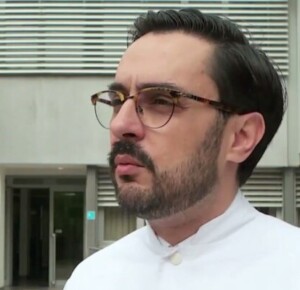Are the larger, more interesting, more populated markets more worthy than the smaller and poorer ones? Where have solidarity, reciprocity, and equal rights for small societies and developing societies gone? Is there justice and equality?

Senad Begic
Pandemics have the incredible power to generate or worsen all well-concelaed social crises, which not only additionally weaken already fragile healthcare systems, but also unveil deep flaws within social organisations and in international relations.
Most authors in the field of ethics and contagious diseases, with very few exceptions, agree on the seven ethical principles which must be taken into conisderation in national decision making in the context of pandemics and epidemics: justice, benevolence, potential benefits, respect for individual and collective rights, personal freedom, reciprocity, and solidarity. There are at least three key ethical issues directly related to the ethical distribution of resources for individual vaccination in these circumstances.
The first principle implies equal opportunity to maximise the potential vaccination benefits for all individuals, whilst simultaneously limiting unwanted consequences of the epidemic. The second principle suggests prioritising vaccine availibility for those who are in any way vulnerable, or more vulnerable than others – including those whose health is compromised for different medical conditions, or those who are socio-economically marginalised. The third principle aims to ensure that any allocation of limited resources disregards any differences in race, gender, or religion in order to not de-prioritize the most vulnerable groups in society.
Individual rules are clear; are they equally applicable when it comes to comparing different societies? Or are there societies which are ‘more equal’ than others only for being wealthier? Are those who are able to ‘pay for everything’ better than others? Are the larger, more interesting, more populated markets more worthy than the smaller and poorer ones? Where have solidarity, reciprocity, and equal rights for small societies and developing societies gone? Is there justice and equality?
And so, having been dealt the cards, developing countries are needing to accept help, despite strong feelings of humiliation and debt to the donors. Help always comes with conditions attached – these often take the form of involvement in internal affairs, in ways which are even more intrusive than the traditional merchant arrangements of former colonisers.
And, this is not just about the vaccine.
A recent Oxfam report revels that the world’s ten wealthiest individuals increased their net worth by over 500 billion dollars during the pandemic – a sufficient amount of money to provide vaccination for every person in the world, and prevent virus-caused poverty. Yet, poverty has never been more apparent, and vaccines have never been less available. Is this the world that is worth fighting for?
We are not even close to realising that our (self)destruction, murder of ourselves and our environment, all the conflicts, history and development of the human race and civilisation, have not been marked only by wars and battles, but by flees and mosquitos, bacteria and viruses. This will be the case until we are prepared to share this planet with them, and with nature.
It is completely clear, and even understandable, that the given contexts don’t allow for a simultaneous fulfilment of all the needs and expectations of citizens and the society – this is something that we cannot deny. However, this does not relieve leaders, especialy leaders of developed societies and comapnies, of the responsibility to measure and weigh priorities of competing ethical values when it comes to decision making. This is, after all, their moral and political commitment as supranational leaders of the modern world. Is this really the case, or has the world become a place where everyone only tends to their own garden, and gardens which bring profit?
Each reader can give their own answer. Because, this is not only about vaccines.
*Views and opinions expressed in the text belong solely to the author, and not to any subjects mentioned, including the author’s employer.
Senad Begic, Epidemiologist, additionally educated in ethics in bio-medical sciences



Leave A Comment